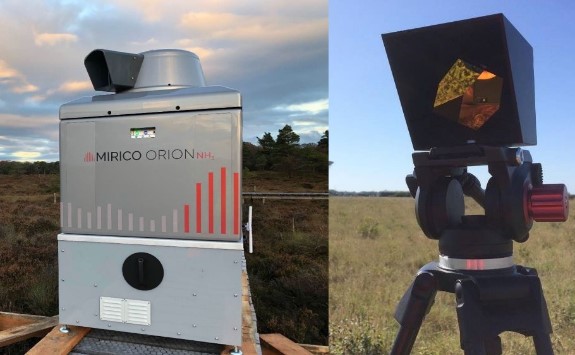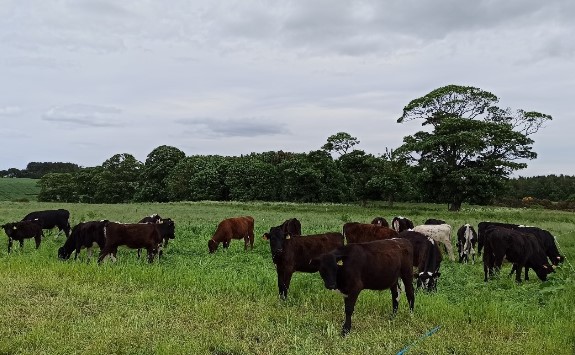Agriculture & Environment
Our Research
Designing agricultural systems that deliver food and fibre, as well as a range of other ecosystem services, is the goal of our interdisciplinary research. We aim to develop systems that deliver an economic return to the farmer and a healthy and sustainable food supply, while also minimising environmental damage and contributing to diverse cultural and ecological ecosystem services.
Agroforestry plots
Topic: Integrating more trees into agricultural systems is one key strategy to deliver multiple ecosystem services from the farmed landscape. This field-scale trial will help us learn more about impacts of trees on food production, as well as C sequestration and biodiversity.
- Project collaborators: Yit Arn Teh, Julia Cooper, Hannah Davis
- External partners: The Woodland Trust
Summary:
In response to growing interest in the integration of more trees into agricultural systems from both the agricultural and policy sectors, an agroforestry research platform is to be established at NU-FARM's Cockle Park farm. Hanging Leaves field has been selected for this field-scale trial which will include six replicate blocks of 4.5 m rows of trees separated by 24 m “alleys” for arable crop production, rotated with grazed ley phases. The experiment will include two different tree types: apples and willow, compared to a no-tree control. Different understoreys will also be tested. This experiment will form a platform for future interdisciplinary studies in the ecology, agronomy and economics of agroforestry. Inquiries from interested students and research collaborators are welcome.
Links to modules: Field work in ACE2074; potential PGT (NES8002) and UG dissertation module (ACE3908) projects
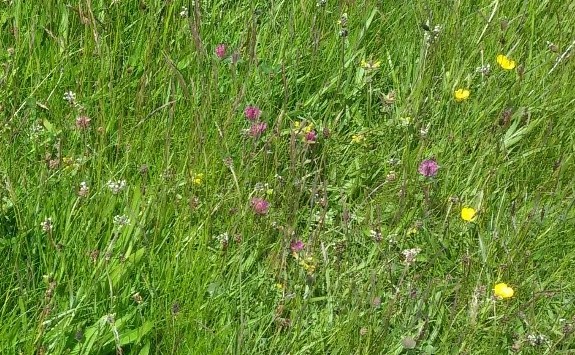
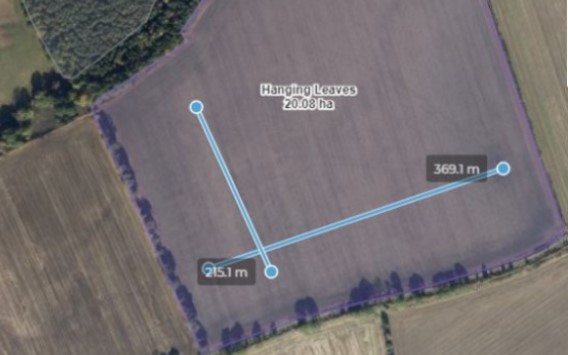
ECOBREED
Topic: Increasing the competitiveness of the organic and low-input breeding and farming sectors.
- Funder: EU H2020
- Project collaborators: Paul Bilsborrow, Ankush Prashar, Leonidas Rempelos
Summary:
ECOBREED will improve the availability of seed and varieties suitable for organic and low- input production. Activities will focus on four crop species, selected for their potential contribution to increase competitiveness of the organic sector, i.e. common wheat, potato, soybean and common buckwheat. The project will develop (a) methods, strategies and infrastructures for organic breeding, (b) varieties with improved stress resistance, resource use efficiency and quality and (c) improved methods for the production of high quality organic seed. The objectives are:
- To increase the availability of seeds and varieties for the organic and low-input sector
- To identify traits and combinations of traits suited to organic and low-input production environment including high nutrient use efficiency and weed competitiveness/allelopathy
- To increase breeding activities for organic and low-input crop production
ECOBREED will increase the competitiveness of the organic and low-input breeding and farming sectors by:
- Identifying genetic and phenotypic variation in morphological, abiotic/biotic tolerance/resistance and nutritional quality traits that can be used in organic breeding
- Evaluation of the potential of genetic variation for enhanced nutrient acquisition
- Evaluation of the potential for increased weed competitiveness and control
- Optimisation of seed production/multiplication via improved agronomic and seed treatment protocols
- Developing efficient, ready-to-use farmer participatory breeding systems
- Pre-breeding of elite varieties for improved agronomic performance, biotic/abiotic stress resistance/tolerance and nutritional quality
- Development of training programmes training programmes in (a) genomic tools/techniques, (b) PPB and (c) use and application of improved phenotyping capabilities.
- Ensuring optimum and rapid utilisation and exploitation of project deliverables and innovations by relevant industry and other user/stakeholder groups.
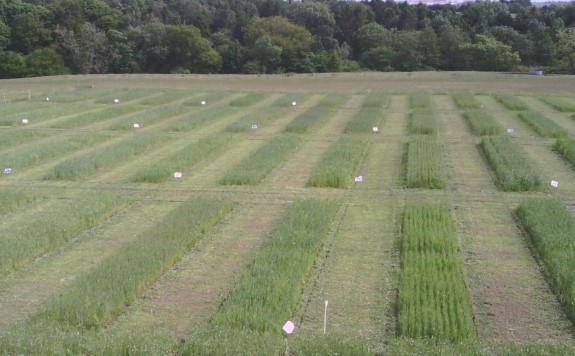
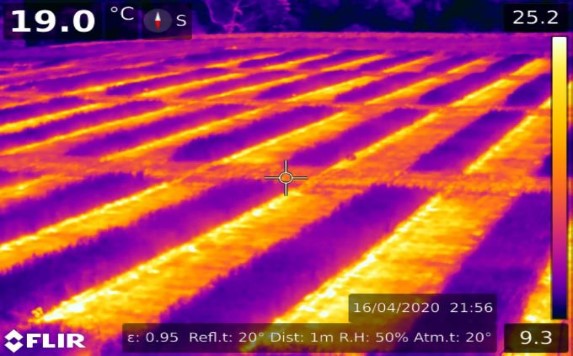
Using spatially explicit soil mapping and modelling to understand and mitigate nitrate leaching in an agricultural catchment
Topic: Through advanced digital soil mapping techniques and on-the-spot measurements of nitrate leaching, we are building our understanding of how spatial variability in soil properties and agricultural management practices affect losses of nitrates to groundwater in the Fell Sandstone region of northern Northumberland.
- Funder: NERC, Northumbrian Water Limited, the Environment Agency
- Project collaborators: Julia Cooper, Naila Hina, John Gowing
- External partners: Northumbrian Water Limited, The Environment Agency
Summary:
The Fell Sandstone aquifer provides vital drinking water to the town of Berwick-upon-Tweed and surounding area. Nitrate levels in Environment Agency monitoring bore holes have shown increasing values in recent years, and there is concern that soon the drinking water boreholes will also have levels in excess of the drinking water standard (>50 ppm nitrate). Since 2017 Newcastle University has collaborated with the Environment Agency and Northumbrian Water Limited to better understand how land management practices, soil properties, geology and topography, interact to impact on nitrate leaching to groundwater.
The project involves the use of remote sensing techniques to produce spatially explicit digital soil maps of key soil properties that influence leaching, including texture, soil organic matter and depth to bedrock. Monitoring of leaching over the drainage season (Oct-Mar) in the field has provided valuable information on the magnitude of losses of nitrate-N from different land uses. Additional activities have included modelling of soil N dynamics using the NDICEA model and agronomic trials to explore the impacts of technologies including nitrification inhibitors (https://www.agricentre.basf.co.uk/en/Products/Product-Search/Nitrogen/Vizura.html) and controlled release fertilisers on N leaching and crop N use efficiency.
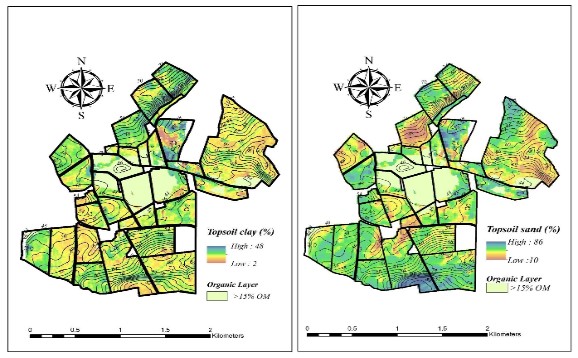
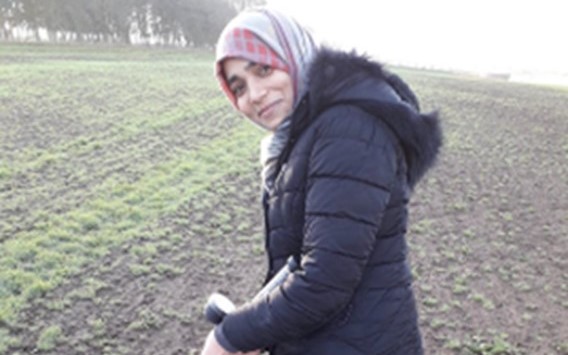
Palace Leas Meadow Hay plots
Topic: The world's longest-running grazing and hay cutting experiment, Palace Leas was established in 1896 and provides a unique platform for studying the impacts of fertiliser treatments on production, biodiversity and sustainability in permanent grasslands.
- Project collaborators: Simon Peacock, Julia Cooper, Robert Shiel
- External partners: The Ecological Continuity Trust
Summary:
The Palace Leas Meadow Hay plots is the longest-running grazing and hay cutting experiment in the world and one of the oldest fertilisation trials. The plots were established in 1896 as one of a group of long-term experiments at Cockle Park, Newcastle University. They demonstrate the changes in old meadow hay brought about by different management systems, ranging from applications of single nutrients (N, P or K) from mineral sources, through to treatments which include a mix of manure and mineral NPK fertilisation. While some of these are now wholly anachronistic, they have been retained so that the long-term effects on soil, species diversity and yield sustainability can be observed.
Dramatic differences in crop yields, soil organic matter contents, and plant and invertebrate biodiversity have developed over time. Today the experiment is a valuable resource to answer current questions in ecology, agriculture and environment highly relevant to policy makers.
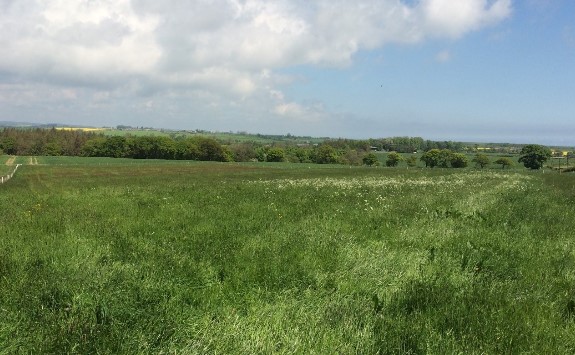

QLIF long-term cropping systems experiments
Topic: Established in 2002, the QLIF experiments at NU-FARMs have provided a versatile platform with a robust design that allows analysis of the impacts of multiple management factors on agricultural and environmental outcomes.
- Project collaborators: Julia Cooper, Dave George
Summary:
The QLIF (QualityLowInputFood) trial was established in 2002 as part of an EU FP6 project (2004-2009) focused on comparing the nutritional quality, environmental impacts and agronomic outputs from organic and conventional farming systems. The trial was designed to produce a variety of crops each year from fully organic and conventional systems, as well as “intermediate” systems that used pesticides but no fertilizer, and vice versa. Numerous publications were produced from this trial that helped address questions about the relative benefits of organic and conventional production systems on a range of production, food quality, and environmental indicators. In 2019 a decision was made to “reset” the trial by implementing a new set of treatments to address current questions in the agricultural sector including:
- reducing the GHG footprint of cropping and net zero;
- use of biological products to stimulate crop growth and as alternatives to pesticides;
- the impact of tillage practice on production and ecosystem services;
- the role of regenerative agricultural practices within sustainable cropping systems.
The crop rotation in the trial has been modified and will include cover crops and legumes in contrast with more intensive arable rotations. Routine assessments on soil quality, and crop growth and development, are conducted with targeted student projects and PhD studies addressing a range of key questions. Future collaborations with industry are encouraged to fully realise the potential of this valuable experimental platform.
Links to modules: ACE8115 – the platform will be used as the basis for a range of learning activities on assessing and appraising agricultural management in practice within this PGT module, with particular emphasis on evaluating 'sustainable' production approaches.
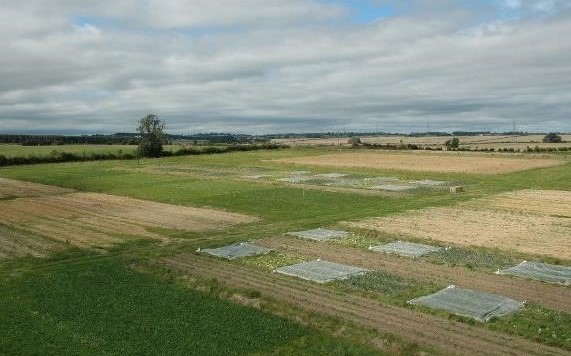
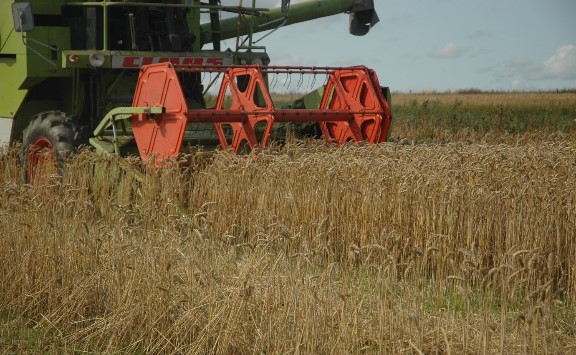
Solutions for improving Agroecosystem and Crop Efficiency for water and nutrient use (SolACE)
Topic: SolACE aims to address major challenges in European agriculture by designing and evaluating strategies and tools to improve water and nutrient use efficiency. Newcastle University is leading the work-package dedicated to on-farm research, coordinating farmer-participatory trials in seven European countries.
- Funder: European Union Horizon 2020 (grant agreement no. 727247)
- Project collaborators: Dr Julia Cooper, Dr Leonidas Rempelos, Dr Amelia Magistrali
- External partners: The SolACE consortium includes 25 partners, and the on-farm trials lead by Newcastle includes partners from: Arvalis (France), CON.CER (Italy), FiBL (Switzerland), LEAF (UK), ÖMKi (Hungary), SLU (Sweden) and UPM (Spain).
Summary:
The SolACE project aims to address water and nutrient limitations on crop production and resilience through the development and assessment of sustainable farming innovations. SolACE employs a multi-actor approach to engage with diverse end-users, including farmers, farm advisors, NGOs and other representatives of the agri-business sector.
The project focuses on improving nutrient use efficiency (NUE) and water use efficiency (WUE) in three crops: potato, bread wheat and durum wheat. Newcastle University is primarily involved in on-farm experiments trialling different NUE and WUE innovations on participatory farms in seven different European countries. The main innovations being assessed are microbial inoculants, decision support tools, grain legumes in rotation, heritage varieties, hybrids, genotype mixtures and conservation tillage.
Twitter: https://twitter.com/SolACE_EU_NET
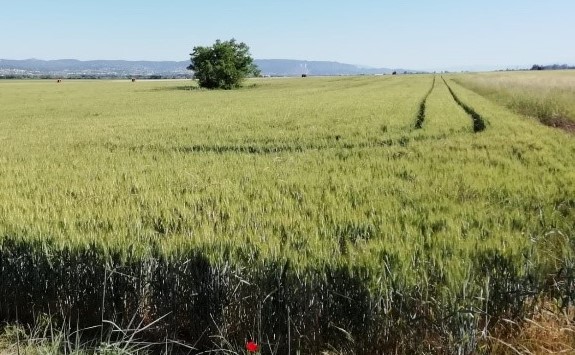
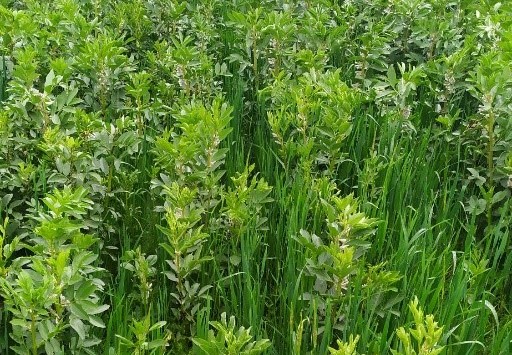
Novel technologies for on-farm measurement of greenhouse gas emissions
Topic: Collaborating with industry to test GHG monitoring technologies on farms
- Funder: UKRI (Innovate UK Farming Innovation Pathways (FIP))
- Newcastle partners: Julia Cooper; Hannah Davis, Yit Arn Teh
- Collaborators: MIRICO Ltd; Anglia Ruskin University
Summary:
This project will focus on developing a novel solution to the challenge of managing greenhouse gas emissions in the UK farming sector. It will demonstrate the application of MIRICO Ltd's ORION gas sensor which can be used to measure emissions of greenhouse gases from farming activities, including methane, carbon dioxide and nitrous oxide.
Trials will be conducted using NU-FARMs mob grazing plots to measure methane emission from cattle. Partner Anglia Ruskin University will be monitoring emissions of nitrous oxide using sensors in fields amended with digestate.
